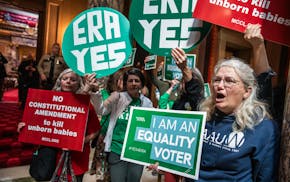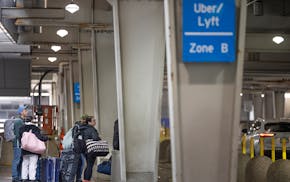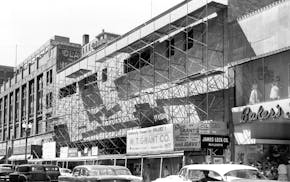A week ago Saturday, someone using the screen name "ArrestAllCEOs" posted the following message on the OccupyWallStreet.org forum:
"I took a break from the struggle here in Zuccotti Park and lined up for the new iPhone 4S, since I wanted to upgrade my iPhone 4. I'm posting from it now.
"It's soooo cool but now I'm totally broke =(
"Anyone else have the new iPhone?"
My guess is this post was bogus, an attempt to embarrass the Occupiers by posing as a doofus who took time off from the struggle to line up to spend his last dime on a $200 toy.
On the other hand, it's entirely possible that the doofus is a real, irony-proof protester. Smart phones are an essential tool for the modern revolutionary. Which is, when you think about it, pretty darned weird. Many of the evils they're railing against in Zuccotti Park are embedded in the iPhone.
In the panegyry that followed Steven P. Jobs' death Oct. 5, most of the eulogies for the Apple cofounder and CEO skipped his contributions to globalization. One of the more cold-eyed assessments came from a writer and actor named Mike Daisey, who is starring in a one-man off-Broadway play that he wrote delving into the complicated moral choices involved in using Apple products.
"Today there is no tech company that looks more like the Big Brother from Apple's iconic 1984 commercial than Apple itself, a testament to how quickly power can corrupt," Daisey wrote in the Oct. 6 New York Times.
"Apple's rise to power in our time directly paralleled the transformation of global manufacturing. As recently as 10 years ago Apple's computers were assembled in the United States, but today they are built in southern China under appalling labor conditions. Apple, like the vast majority of the electronics industry, skirts labor laws by subcontracting all its manufacturing to companies like Foxconn, a firm made infamous for suicides at its plants, a worker dying after working a 34-hour shift, widespread beatings, and a willingness to do whatever it takes to meet high quotas set by tech companies like Apple."
In 2009, two researchers at the Asian Development Bank Institute did their own breakdown of the process involved in building an iPhone 3. The parts came from nine different countries. The assembly was done in China. The total bill of materials was $172.46, of which $48 was attributable to U.S.-made parts. The assembly cost was the equivalent of $6.50 per unit for a total manufacturing cost of $178.96.
The researchers, Yuqing Xing and Neal Detert, argued that Apple could move its assembly operation to the United States, create thousands of jobs and build the phones for $240 per unit, including $68 in assembly costs. That still would allow the company a 50 percent profit margin on each unit, they argued.
"Giving up a small portion of the profits and sharing them with low-skilled U.S. workers ... would be a more effective way to reduce the U.S. trade deficit and create jobs in the U.S.," they said.
Clearly, many of the same arguments could be mounted against non-Apple phones. It's just that Steve Jobs made Apple's phones (and iPods and iPads and iMacs) so darned cool that even the most scrupulously concerned American consumers couldn't pass them up.
In my house, there are at least five of these products. I rationalize this on the grounds that Apple cares not one bit about my individual buying decisions. I would have been happy to pay an extra $100 for an American-made iPad, but that wasn't an option. Steve Jobs and Apple's board chose the extra profits.
Back in Apple's early days, most phones in America were still made by Western Electric in U.S. factories by unionized workers who supported their families on middle-class earnings. The phones came with cords, though, and weren't cool at all, except as you regard being practically indestructible as cool.
Globalization was going to send all the drudge jobs overseas. American companies would spend their newfound profits on cool new ideas that would be executed by new generations of highly skilled American workers. The first part worked out fine. The second part worked out fine for a relative handful of Stanford graduates, web developers and investors. For the working class, not so much.
So they've taken to the streets in protest, staying in touch with really cool phones. There should be an app for excessive irony.
Kevin Horrigan is at khorriganpost-dispatch.com.
Pass guardrails for HCMC governance changes

Minnesota needs an ERA that includes gender and reproductive freedom

Legislature must clarify sex, gender before putting an ERA before Minnesota voters

Legislature must act — properly — on Uber and Lyft before adjourning
